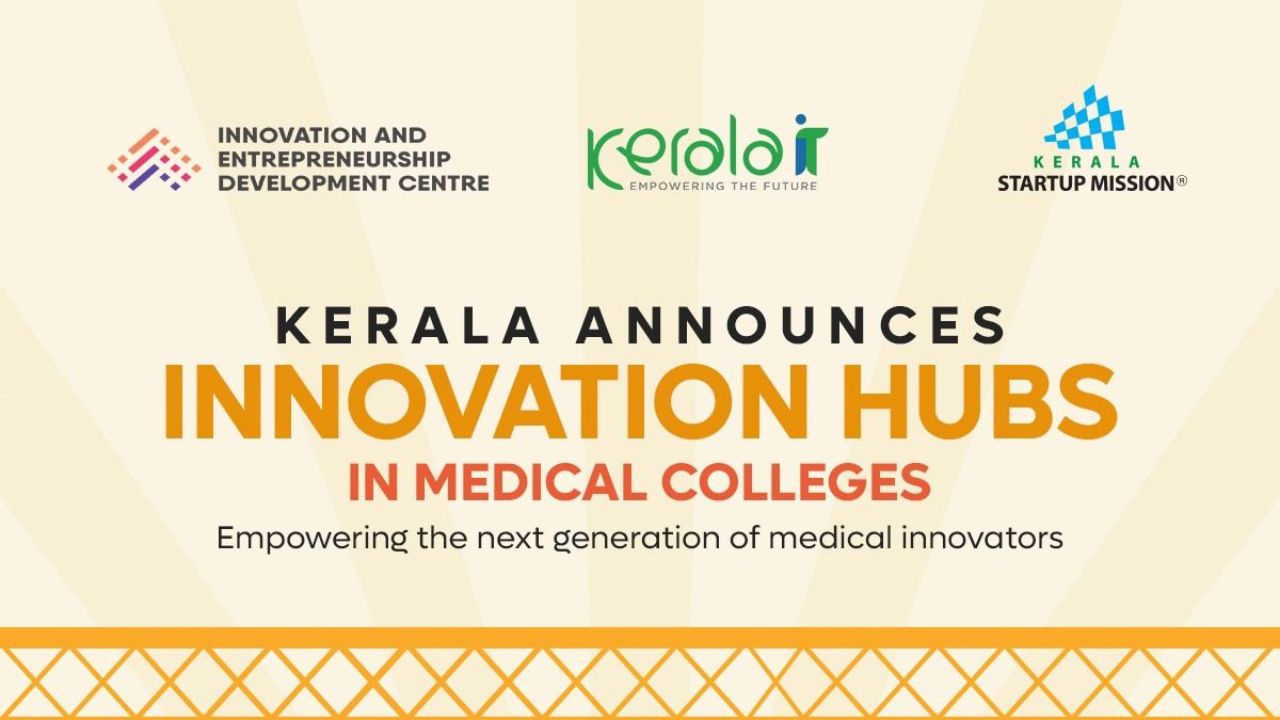In a significant move to accelerate healthcare innovation and medical technology advancement, the Government of Kerala has sanctioned the immediate establishment of Innovation & Entrepreneurship Development Centres (IEDCs) across all Government Medical Colleges in the state. This landmark decision traces back to 2022, when the Kerala chapter of the Indian Medical Association (IMA) and the Kerala Startup Mission (KSUM) proposed the concept of embedding IEDCs within medical institutions.
Also Read: Meet Little Tiger: The Humanoid Officer Directing Shanghai Streets
Backed by a Coalition of Stakeholders
According to the official government order, the decision followed comprehensive consultations involving the Directorate of Medical Education, KSUM, K-DISC, and key administrators overseeing medical education. All parties mutually endorsed the plan, which also includes the development of a Health Tech Hub within the Apex Trauma and Emergency Learning Centre (ATELC) at Thiruvananthapuram Medical College.
A Platform for Real-World Solutions
Commenting on the development, Anoop Ambika, CEO of KSUM, expressed gratitude to the Health Department and Chief Minister Pinarayi Vijayan for their swift approval. He emphasised that these IEDCs will facilitate a seamless path from clinical observations to tangible healthcare solutions. The centres aim to enable medical students, faculty, and professionals to move from ideation and prototyping to validation and commercialisation.
Ambika further highlighted that combining the strengths of the Kerala Startup Mission, the Kerala Medical Technology Consortium, the IMA (Kerala), the Kerala University of Health Sciences, and the Directorate of Medical Education will foster an environment where medical knowledge, technological innovation, and entrepreneurial spirit converge. He believes this initiative will enhance patient care while positioning Kerala’s government medical colleges as trendsetters in healthcare innovation.
A Long-Awaited Opportunity
Dr Joseph Benaven, Chair of the IMA Employment and Career Facilitation Bureau, welcomed the move, observing that it fills a critical void. He noted that while schools, arts and science colleges, and engineering institutions in Kerala already have IEDCs—and some private medical colleges like the Believers Church Medical College do as well—government medical colleges have lagged. This development, he said, is overdue.
Catalysing Health-Tech and Med-Tech Innovations
Dr Benaven added that these new IEDCs are expected to catalyse innovation in the fields of AI-driven health technology and medical devices, potentially establishing Kerala as a hub for health-tech breakthroughs.
Also Read: India’s ₹4600 Cr Chip Projects Approved
Building Interdisciplinary Synergy
To foster effective innovation clusters, the IMA has initiated discussions with institutions such as IIT Palakkad, NIT Calicut, CUSAT, and the College of Engineering, Thiruvananthapuram. These collaborations aim to bring together engineering graduates and medical professionals in cooperative efforts to develop impactful, homegrown solutions.
Focus Areas of the IEDCs
According to the government order, the IEDCs will primarily concentrate on three domains:
Medical Technology and Devices
Digital Health Solutions
Healthcare Service Delivery Models
These centres will drive initiatives such as cutting-edge diagnostic tools, patient-monitoring technologies, treatment innovations, and rehabilitation systems. They will also encourage platforms and applications that improve healthcare access, data management, telemedicine, patient engagement, and analytics.




